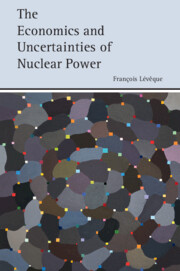Book contents
- Frontmatter
- Contents
- List of Abbreviations
- Introduction
- Part I Estimating the costs of nuclear power
- Part II The risk of a major nuclear accident
- Part III Safety regulation
- Part IV National policies and international governance
- Ten Adopting nuclear power
- Eleven Nuclear exit
- Twelve Supranational governance
- Thirteen International governance to combat proliferation
- Conclusion
- Notes
- Index
Eleven - Nuclear exit
Published online by Cambridge University Press: 05 January 2015
- Frontmatter
- Contents
- List of Abbreviations
- Introduction
- Part I Estimating the costs of nuclear power
- Part II The risk of a major nuclear accident
- Part III Safety regulation
- Part IV National policies and international governance
- Ten Adopting nuclear power
- Eleven Nuclear exit
- Twelve Supranational governance
- Thirteen International governance to combat proliferation
- Conclusion
- Notes
- Index
Summary
Several dozen countries are eager to adopt nuclear power, yet others, such as Germany or Switzerland, are trying to phase out this energy source. Why are nations which once banked on the atom now pulling out? It seems to make no sense, particularly as others, following the example set by the United Kingdom, are still determined to renew their fleet. Even France seems to be in a quandary: just a few years ago it started building a new reactor; now it has decided to reduce the share of nuclear power in its energy mix.
For countries already equipped with nuclear power plants, the first step towards phasing out nuclear technology is to stop further construction. A small number of countries have taken the plunge: Germany, Switzerland, Belgium, Spain and Sweden. The next question is what to do with existing plants. Should they be shut down as soon as possible or is it preferable to wait till the safety authority or utility decides they no longer fulfil the conditions for safe or cost-effective operation? In short, a choice between swift or gradual retirement. Germany took a decision on both issues in just a few months, making it a good example for study. France is equally interesting, on account of its decision to trim its sails. We shall analyse both cases in detail. What is interesting is that some of the political motives are similar.
- Type
- Chapter
- Information
- The Economics and Uncertainties of Nuclear Power , pp. 226 - 243Publisher: Cambridge University PressPrint publication year: 2014



